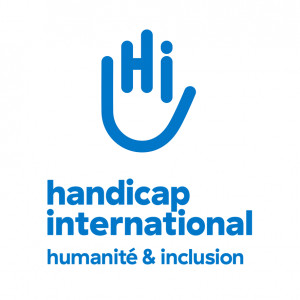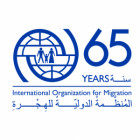وظيفة شاغرة
Risk Education Agent - Handicap International
Risk Education Agent – Tripoli PRESENTATION OF THE ORGANISATION Outraged by the injustice faced by people with disabilities and vulnerable populations, we aspire to a world of solidarity and inclusion, enriched by our differences, where everyone can live in dignity. Handicap International is an independent and impartial aid and development organization working in situations of poverty and exclusion, conflict and disaster. We work alongside people with disabilities and vulnerable people to help meet their essential needs, improve their living conditions and promote respect for their dignity and fundamental rights. Since the organisation was first founded in 1982, we have set up emergency and development programmes in 62 countries. Today, HI has a budget of around 170 million euros, with about 3,500 employees worldwide. HI is engaged in an employment policy in favour of workers living with a disability. For further information about the association: www.hi.org COUNTRY CONTEXT: The Libyan uprising nine years ago left the country in a state of turmoil. Since 2011, continued conflict in many parts of the country and political instability have resulted in a vacuum of effective governance and caused significant collapse in the country’s political-institutional system. Security, rule of law and social and economic well-being of the Libyan population have all been severely affected and over 400,000 persons are now internally displaced across the country. The lack of a unified, national government combined with high levels of corruption and free-flowing weaponry have led to a weak, divided state under the control of a multitude of armed groups. This is gradually affecting the social and community cohesion of the country, as people are torn between their tribal and family allegiances and their hope to live again as a united country. The resilience of the Libyan population is steadily reducing, as individuals and communities are facing uncertainty regarding their future, with a very limited capacity of the authorities and relevant institutions to respond to their needs. The healthcare system in Libya is one of the hardest hit, having deteriorated to the point of collapse. Ongoing challenges include increased rates of chronic illness, disability and access to essential services such as medicine and rehabilitation. Hospitals struggle to absorb the number of patients and to cope with a lack of resources, including a shortage of staff and essential medicines and supplies. According to the World Health Organization, around 1.3 million people have no access to life-saving health care services. The COVID-19 pandemic exacerbated the already existing vulnerability of the Libyan population, adding up to the effects from years of conflict, and a collapsing healthcare system. Number of cases have reached a peak in August of September, the majority of confirmed cases being in the main urban areas, such Tripoli, Misrata, Benghazi or Sebha. While Libya already faced high Explosive Ordnance (EO) contamination due to nine years of conflict, Explosive ordnance contamination in the greater Tripoli area and in Sirt has increased considerably since the LNA offensive in April 2019 and the counter offensive of GNA in March 2020. Meanwhile most humanitarian mine action operations were suspended in areas affected by the hostilities in the second quarter of 2019. Indiscriminate shelling, Explosive Ordnance (EO) left by the various forces involved in the conflict and the increased use of improvised explosive devices caused new displacements, a new layer of land contamination, and a rise in EO related accidents, killing and injuring civilians and non-civilians, including mine clearance and humanitarian workers. The identification of the most vulnerable individuals, including people with disabilities or injuries, and the rapid response to essential needs is a priority for the humanitarian community working throughout Libya. The political conflict and humanitarian crisis is likely to continue throughout the year 2020; whilst at the same time continue to hamper the delivery of primarily medical and socio-economic services, complicating access and increasing the vulnerability of the general population. WORKING ENVIRONMENT HI is currently implementing several programmes in Tripoli, Misrata and Benghazi, supporting vulnerable persons and their families such as people with disabilities (including people living with mental health problems), people with chronic diseases, older persons and displaced persons and families. Activities include provision of comprehensive rehabilitation services including physical therapy and psychosocial support, provision of assistive & mobility devices as per needed; capacity building, technical support and donations of assistive devices and/or materials and equipment to health partners; training on inclusion principles to other humanitarian actors and health workers; Since early 2019 HI is implementing a three-year project entitled ‘Action for Mental Health Assistance in Libya’ (AMAL) as part of wider initiatives to improve the access and quality of health care services in Libya. Implemented in partnership with the Libyan Ministry of Health and a Tunisian NGO, the overall objective of the project is to allow the most vulnerable people in Libya from host communities, those internally displaced and returnees and migrants, suffering from mental health disorders/psychosocial disabilities to regain or to preserve good mental health by accessing quality interventions at community level, primary health care level, and secondary and tertiary level. From July 2020, HI also started a one-year project in partnership with UNDP, which aims to enhance the development of a culture of peace, cooperation and responsibility – with a focus on youth (male and female) – through improved provision of MHPSS services at community level. This project will strongly rely on Libyan Civil Society Organisations. HI is also involved in Humanitarian Mine Action (HMA) activities, HI supports the Libyan Mine Action Centre (LibMAC), UNMAS and other ministries in developing a victim assistance strategy and action plan. As a response to increased ERW related accidents, HI is also resuming its Risk Education activities in greater Tripoli in November. The post holder will be expected to travel regularly between his / her operational bases in Benghazi, and Tunis, where is based HI Maghreb regional office. This being said, important challenges exist to move in and out of the country. Indeed, since March 2020, heavy sanitary measures have been enforced both in Libya and Tunisia, such as border closures and travel restrictions, disruption of supply chain, lockdown, curfews, movement’s restrictions and social distancing. As a result, the expatriates working for HI Libya mission are currently operating on a “semi-remote” management mode and the senior country team is expected to adapt accordingly its management style, communication and support / control mechanisms. Based in Tripoli under the line management of the Risk Education Project Officer, the Risk Education (RE) Agent is responsible for assisting the Project Officer in running RE activities in the governorate of Tripoli. The RE component of the project involves giving RE safety briefings to persons at risk on the dangers of mines, explosive remnant of war (ERW), small arms and light weapons (SALW) and improvised explosive devices (IED), as well as other topics identified and relevant for the sake of the RE project. – Contribute to the Context Analysis information collection and update – Organize, coordinate and supervise HI RE activities – Ensure the implementation of the RE activities according to the objectives defined in the project – Ensure that the methodology used answers the needs and is adapted to the context – Propose and adapt new methodology of intervention in coordination with the PM – Create the weekly planning of HI teams and manage their daily activities and movements to the field – Identify any training needs of the field teams and relay these needs to the PM – Guarantee fulfillment of attendance sheets and appraisal forms of managed staff according to HR procedures – Ensure all teams are carrying out their activities to a high standard – Ensure all field teams are making appropriate records of their activities and link this information with the data/monitoring in a timely manner – Provide weekly and monthly reporting to the PO in order to answer to the program needs – Guarantee consistency of project archive – Support field teams to correctly complete all required reporting (statistics, field activity reports, etc.) – Carry out quality assurance on all teams to check respect of validated RE messages and delivery of messages – At field level, meet on regular basis the different stakeholders (local associations, authorities, etc.) – Attend relevant working groups upon request from the line manager – Create and maintain a network in the area of operation – Carry out RE training to HI staff, partner teams and other actors as necessary – Translation of documents related to the project between English-Arabic – To demonstrate an ethic and professional practice – Respect beneficiary confidentiality – Respect and promote HI’s Policies and report to your line manager any non-respect of HI’s policies amongst the teams or partners – Address needs and requests in a professional way – Demonstrate willingness to improve professional competences and abilities to increase care – Demonstrate motivation at work – Demonstrate willingness to improve own knowledge and skills by participating actively in any training sessions and capacity building activities – Respect each team member’s positions, work, and specialty – Adapt to special situations or demands from supervisor Education: University degree in social work or a related field Languages: Excellent Arabic, and English mandatory (oral and written) Experience: Minimum of 2 years relevant professional experience. Previous experience with international or local NGOs desirable. Previous experience in team and/or project management Other/General: Note that this job description must remain flexible, to respond to additional tasks or changes as identified by the line manager. HIERARCHICAL RELATIONSHIP: Base : Khanaqin Tripoli Line Manager : Project Officer Line-Managed employees : None Head of Department : Field Coordinator Management : Yes Operational link : Health Project Officer, Database and Referral Focal Point Officer, Logistics Officer, Admin. Officer, RE TA. CONFIDENTIALITY: Regarding this position, the employee can have access to confidential information. Breaches of confidentiality will be considered as a disciplinary fault and be sanctioned appropriately. The position is opened for Libyan Nationals only APPLICATION : Please send your CV and cover letter by email, with the subject reference “Risk Education Agent – Tripoli ” to:recruitment@libya.hi.org or via Libya jobs website. GLOBAL OBJECTIVE OF THE POSITION:
RESPONSABILITIES AND TASKS DESCRIPTION
Required profile
لتقدم للوظيفة أنتهت صلاحية الاعلان




